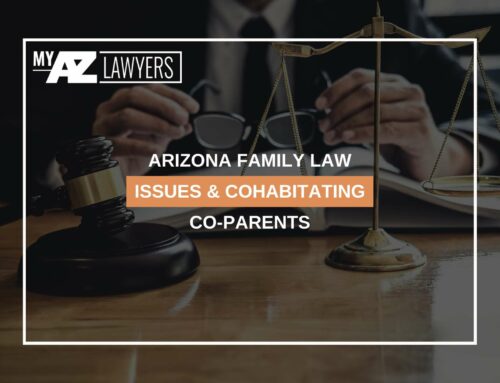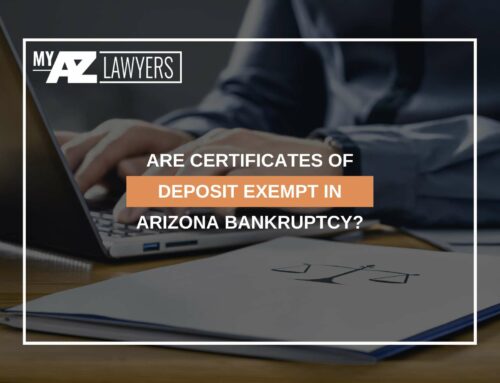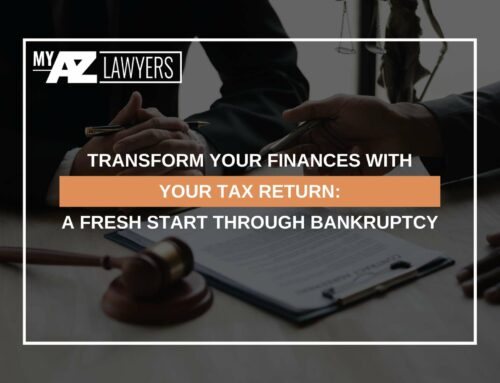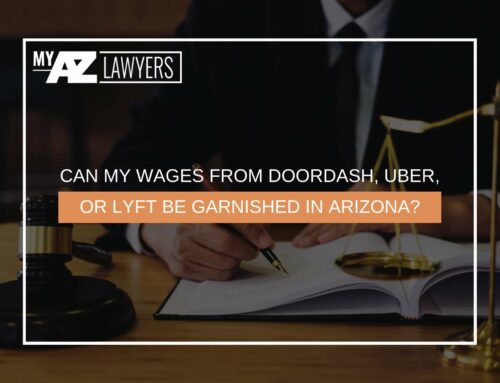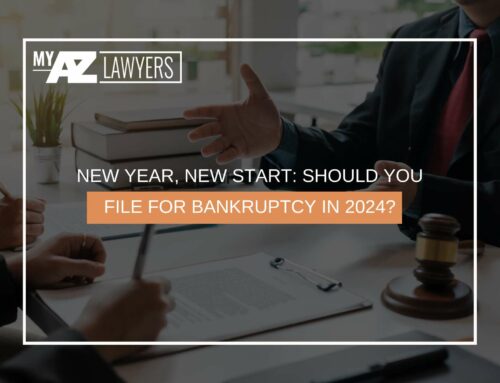What Does Filing for Bankruptcy Mean for Your Tax Refund?
Filing for bankruptcy can help you get out from under the weight of overwhelming debt. Depending on your circumstances, you can either qualify to have your unsecured debt discharged, such as credit card and medical bills, or you could have your debt consolidated under one repayment plan. The repayment plan can also reduce your overall amount owed, depending on your income and other circumstances.
However, if you are thinking of filing for bankruptcy, you may be worried about how it will affect your assets. You may be worried about losing things like your car, your house, or your savings accounts. If you are expecting a tax refund, you may be worried that it will be taken. Unfortunately, there’s no one answer to this question. Whether your tax refund will be taken in your bankruptcy depends on a number of factors, including the type of bankruptcy you file.

Chapter 13 Bankruptcy
In a Chapter 13 bankruptcy, the trustee determines what disposable income you have available to pay off your debts. That information is used to determine how much you will repay each month and whether you can pay the full amount of your debts. If you have recently received a tax refund or are expected to get one soon, that money will be included in your disposable income and will be applied to your debts. If you get any tax refund over the course of your repayment plan, which is usually three to five years, that will be considered additional income and will be applied to your debts.
You may be able to keep your tax refund if you can show that you have experienced a change in financial circumstances and are unable to meet our basic needs. You could show that you need the refund to pay things like your rent or your electric bill. Otherwise, be prepared to hand over your refund.
Chapter 7 Bankruptcy
In a Chapter 7 bankruptcy, you are allowed to keep certain assets that are under a certain value. A tax refund is considered an asset, so depending on how much it is, you may be able to keep it. If the refund is not exempt, it can be taken to pay off your creditors. Any recently distributed tax refund or refund expected to come in the near future can be confiscated. If you are expecting refunds from previous tax years, those can also be taken.
It’s possible to keep your tax refund in a Chapter 7 bankruptcy if it is not considered exempt. For example, you could get your tax refund and spend it before you file for bankruptcy. Just make sure that you spend it on your basic living expenses and not on a luxury item like a new TV or jewelry. You could also use your refund to pay for your bankruptcy attorney or the legal fees associated with filing for bankruptcy. If you spend it on anything extraneous, you could be accused of bankruptcy fraud.
Always work with an experienced bankruptcy attorney to determine how to best handle your tax refund if you are considering filing for bankruptcy. There may be way to keep your tax refund, but you’ll want to make sure you are acting within the confines of the law.
Otherwise, you could put your bankruptcy filing at risk or potentially face other consequences. Your bankruptcy lawyer can counsel you on the rules as they apply to your circumstances and what you can do to maximize your use of your assets as well as the debt relief you get under bankruptcy.
If you are thinking of filing for bankruptcy, contact My AZ Lawyers.
Our bankruptcy lawyers can help you determine the right debt relief strategy for you, based on your personal financial circumstances and your goals. With one of our bankruptcy lawyers on your side, you can get approved for maximum debt relief so that you can get the second chance you need. You can start to reclaim your finances and build a more positive future. Contact us in Arizona today to talk with a bankruptcy attorney and learn how this legal benefit can help you take back your finances.
Published By:
My AZ Lawyers
Mesa Location:
1731 West Baseline Rd., Suite #100
Mesa, AZ 85202
Office: (480) 448-9800
Glendale Location:
20325 N 51st Avenue Suite #134, Building 5
Glendale, AZ 85308
Office: (602) 509-0955
Tucson Location:
2 East Congress St., Suite #900-6A
Tucson, AZ 85701
Office: (520) 441-1450
Avondale Location:
12725 W. Indian School Rd., Ste E, #101
Avondale, AZ 85392
Office: (623) 399-4222

